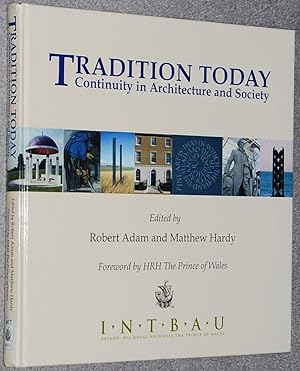Inhaltsangabe
In January 2002, after a two year gestation period, the International Network for Traditional Buildings, Architecture and Urbanism (INTBAU) was launched. To celebrate the launch, a conference was held to debate the place of tradition in modern society. While INTBAU was specifically concerned with building and urbanism, if tradition was indeed relevant then it must have a place throughout society. The conference forms the basis of this book. It is an important feature of traditions that they adapt and change. So, while change accelerates so should the adaptation of traditions. If we rely on tradition for the transmission of culture, then the adaptation of traditions is a matter of importance to all of us. If change occurs without the transmission of culture, then culture itself dies; culture cannot be created anew every day. The evolutionary nature of tradition is something often ignored by supporters and opponents alike. It is important that history - that which measures our distance from the past - is not confused with tradition - the past living through us. The papers presented in this book discuss these points and many others are a fascinating miscellany.With contributions ranging from the practical to the academic these papers can leave no doubt about the continued role and significance of tradition, the passion of those who understand its relevance and the dangers inherent in its denial.
Über die Autorin bzw. den Autor
Robert Adam trained at the University of Westminster and won a Rome Scholarship. He has practiced in the city of Winchester since 1977 and co-founded Winchester Design in 1986, which became known as Robert Adam Architects in 2000. He works closely with clients on a diverse range of projects including major private houses, extensions to historic buildings and public and commercial buildings. Robert Adam's contribution to the classical tradition is internationally acknowledged, both as a scholar and as a designer of traditional and progressive classical architecture. He is also a designer of classical furniture. Robert Adam founded the Popular Housing Forum in 1995 as a result of his long involvement with speculative housing and masterplanning. He founded the International Network for Traditional Building, Architecture & Urbanism (INTBAU) in 2000. Robert Adam's work is widely published, broadcast and exhibited. He writes, lectures and broadcasts on a variety of subjects including classical architecture, masterplanning, housing and countryside issues. He is a Royal Institute of British Architects Councillor, and was previously an advisor to the Commission for Architecture & the Built Environment (CABE) and English Heritage. His Professional Memberships include: Member of the RIBA , Fellow of the Royal Society of Arts , Brother of the Art Workers' Guild , Architecture Club Committee, Chairman - Popular Housing Group, from 1995-2003, now merged and Trustee of Design for Homes from 2003., Chairman - Management Committee, International Network for Traditional Building, Architecture & Urbanism (INTBAU) from 2000, Elected RIBA Councillor, trustee of RIBA from 1999, Commission for Architecture & the Built Environment, Design Review Committee 1999-2004, Trustee - RIBA Foundation from 2003, Trustee The Maria Nobrega Foundation from 2003. Info obtained from INTBAU website and mostly rewritten(except statement on his PhD research): Matthew Hardy is an Australian architect and architectural historian who serves as the Secretary for The International Network for Traditional Building, Architecture & Urbanism, working from London. Matthew holds a degree in architecture from the University of Adelaide, South Australia, and a PhD in architectural history from the University of Wales. His PhD research, based at the Prince of Wales's Institute of Architecture in London, was a study of Hippocratic attitudes to climate and their influence on house planning in the classical tradition.
„Über diesen Titel“ kann sich auf eine andere Ausgabe dieses Titels beziehen.
